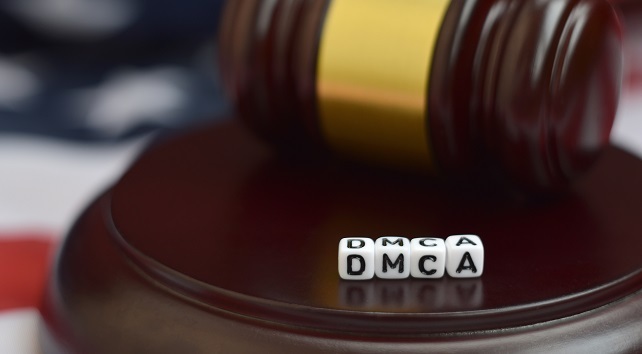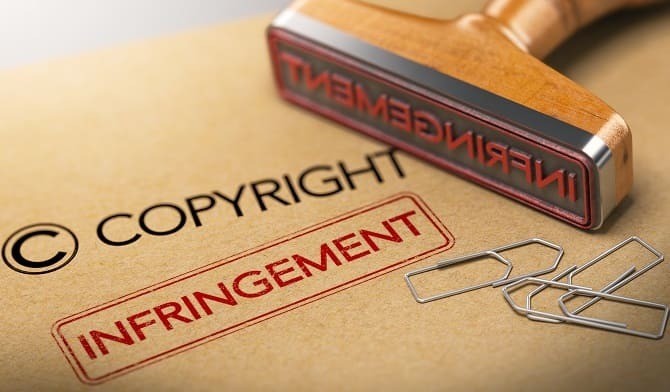
 Data Structure
Data Structure Networking
Networking RDBMS
RDBMS Operating System
Operating System Java
Java MS Excel
MS Excel iOS
iOS HTML
HTML CSS
CSS Android
Android Python
Python C Programming
C Programming C++
C++ C#
C# MongoDB
MongoDB MySQL
MySQL Javascript
Javascript PHP
PHP
- Selected Reading
- UPSC IAS Exams Notes
- Developer's Best Practices
- Questions and Answers
- Effective Resume Writing
- HR Interview Questions
- Computer Glossary
- Who is Who
What is the full form of DMCA?
Introduction
Digital Millennium Copyright Act (DMCA) is a federal copyright law that was first established in the US in 1998. There weren't many regulations or protections for online content when the internet first got started, but the DMCA changed that by giving copyright owners more control over who can use their work and how.

As you know, the internet has two sides, your information instantly becomes available to people all over the world when you share it online using the top website builders and web hosting services, and with that increased visibility, the likelihood that someone may plagiarize or steal your work rises dramatically.
The Copyright Protection Act (DMCA) and other rules that safeguard copyrighted internet content are probably familiar to consumers. The law also exempts from liability internet service providers as well as online platforms that may host copyright-protected information.
The DMCA prohibits internet users from uploading content that is not their own. Pictures, movies, and music cannot be used or transmitted online without the owner's permission. The DMCA standards may require violators to delete or remove copyrighted content from their websites.
Key provisions of DMCA
The DMCA only applies to companies located in the US because it is a part of US copyright law. The law must be followed by all websites housed in the US. Therefore, if the hosting website is based in the US, even if the owner of the copyright is located outside of the US, they may still issue a DMCA notification.
To avoid any legal repercussions in their own country, many hosting companies and enterprises, even though they are hosted outside the US, abide by their copyright laws and frequently accept DMCA takedown notices. Additionally, the majority of websites housed in WIPO-member nations follow the Digital Rights Management law and consider DMCA takedown requests.
DMCA takedown notice
A DMCA takedown notice informs a business, search engine, internet service provider, or web host that the content they are hosting or referring to violates the copyright. The organization or website that received the warning needs to remove the protected content right away.
The ISP has the right to force them to put down the content if they don't do so. You can submit a DMCA takedown request for the following kinds of copyrighted content
A written work, such as a book, article, poem, blog, etc
Images that you took and published on the official social media channels of your company
Paintings, artwork, photographs, etc.
Music, songs, and other audio files
Digital software, videos
When the website hosting the copyrighted information is not in the US or another nation that abides by the DMCA or copyright regulations, you may encounter difficulties when attempting to serve a DMCA takedown request.
DMCA safe harbor provisions
Online service providers and other internet intermediaries are given a haven by being exempted from direct The Digital Millennium Copyright Act, also known as the DMCA safe harbor, prohibits copyright violation.

Congress has established four secure harbors, and in these circumstances, Online Service Providers are only minimally liable for copyright infringement. The permissible safe harbors under the DMCA are as follows
System cache
Tools for locating information
Digital network communication on-demand
Putting data in a computer system or network at the user's request
The creation of DMCA safe harbors was done to grow the internet and increase the diversity and caliber of services offered there. It couldn't be done by reducing Internet service providers' responsibility
If ISPs had made copies of copyrighted content for the reason of improving speed, hosted websites, or even sent consumers to sites that might contain illegal information, they would have violated copyright.
As a result, ISPs and websites that fit into one of the safe harbor groups have limited responsibility to avoid these issues, improve internet efficiency, and expand.
Conclusion
The DMCA is one of the US laws that has the biggest influence over online material. It provides content owners with rights and protections to help secure copyrighted works. The regulation also offers guidelines for internet users' permissible use of copious amounts of online content.
Although protecting creative work while fostering a free and open interchange of ideas is a difficult balance to strike, regulations like the DMCA exist. Patenting is a tricky subject, particularly in online areas.
FAQs
Q1. What does DMCA Title 1 mean?
Ans: To comply with the WIPO Copyright Treaty and the WIPO Performances and Phonograms Treaty, which were both adopted at the WIPO Diplomatic Conference in December 1996, DMCA Title I, the WIPO Copyright and Performances, and Phonograms Treaties Implementation Act, modify U.S. copyright law. There are two main parts to the accords.
Q2. Are content producers and owners of copyrights protected by Section 512?
Ans: Stating that safe harbors are essential to the development and success of a free and creative internet. However, many content producers and copyright holders condemned section 512, with some advocating that OSPs be given more responsibility for monitoring their platforms for illegal content.
Q3. Can You submit a DMCA takedown request on my own?
Ans: You have two options: process your notices using the Do It Yourself technique or hire a professional to handle the entire process for you using the Professionally Managed Takedown Service.

